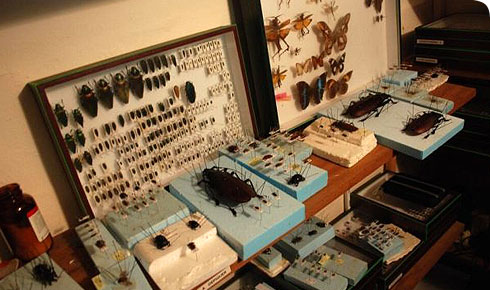Conservation
Like most inhabitants of the tropical rainforests, titan beetles are threatened by deforestation and habitat loss. Paradoxically, the interest of commercial collectors in specimens of Titanus may help to save not only the beetles themselves, but the whole ecosystem where they live.
Anything that can be commercially marketed, even on a relatively small scale, but which lives only in good quality forest, will have the fringe benefit of saving tracts of forest that would otherwise be cleared away for more destructive forms of subsistence. One example is the brazil nut which is considered a ‘green’ product because the nuts only grow well in relatively diverse, undisturbed forest. Thus, the brazil nut industry provides an incentive to local people to keep areas of natural forest in good condition. This provides an income from the nuts, and at the same time protects everything else that inhabits the forest.
There are villages in French Guiana, in the rainforests, where many people supplement their income by collecting insects in general, and Titanus in particular, for sale to dealers and collectors. This cottage industry ensures the continued survival of the forests in these areas, and all the species they support.
Because female Titanus beetles are nearly impossible to collect, the commercial industry deals almost entirely in males. This makes the business truly sustainable, because the removal of males is less damaging to a population than removal of females (because one male can fertilise many females).
So as well as being a truly magnificent creature, and the largest beetle in the world, Titanus giganteus could be described as a guardian of the rainforest.
Since it is a large and showy insect, and many specimens end up in the commercial trade, there have been moves to extend legal protection to this species. But any such legislation is likely to have a negative impact and lead to further deforestation.
